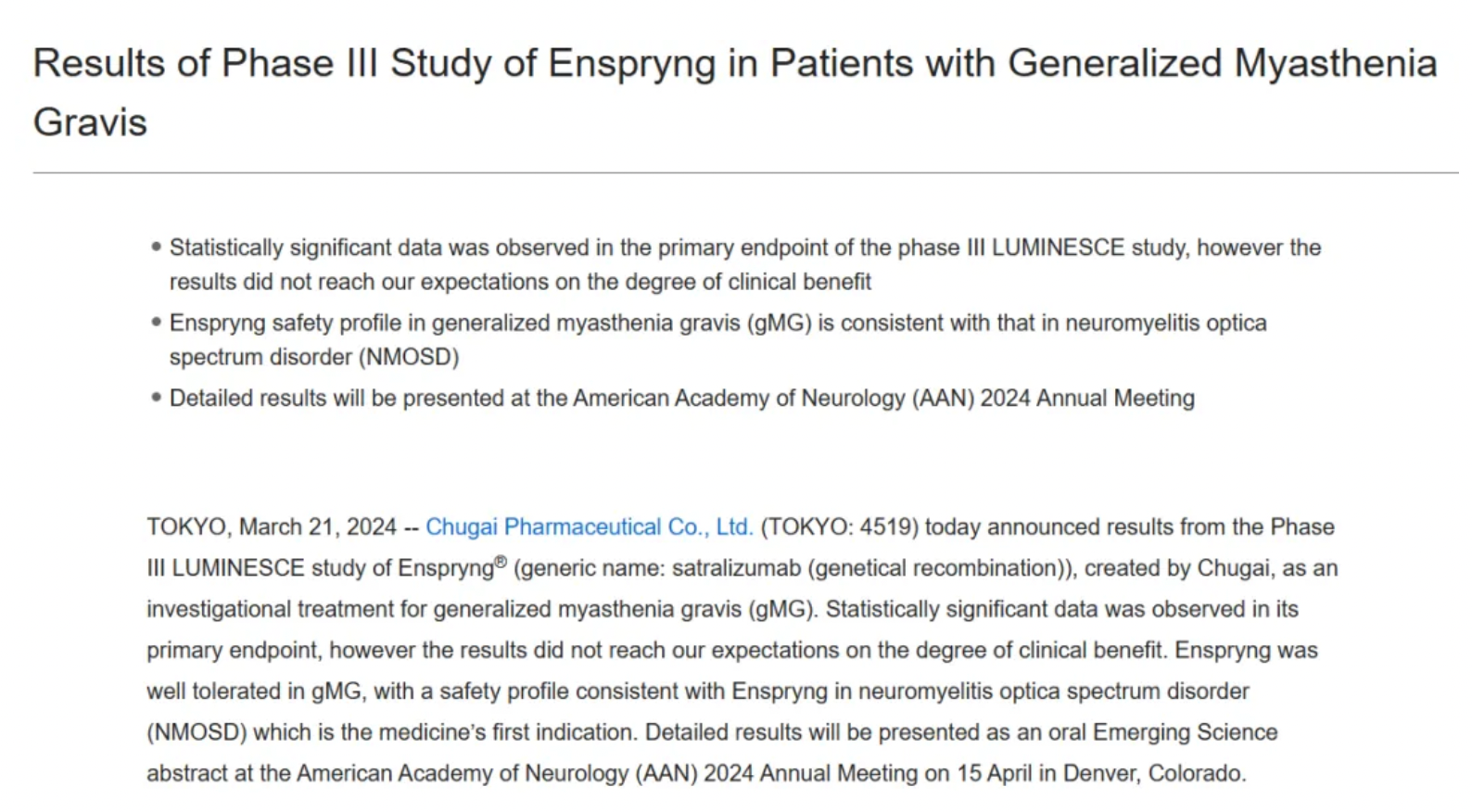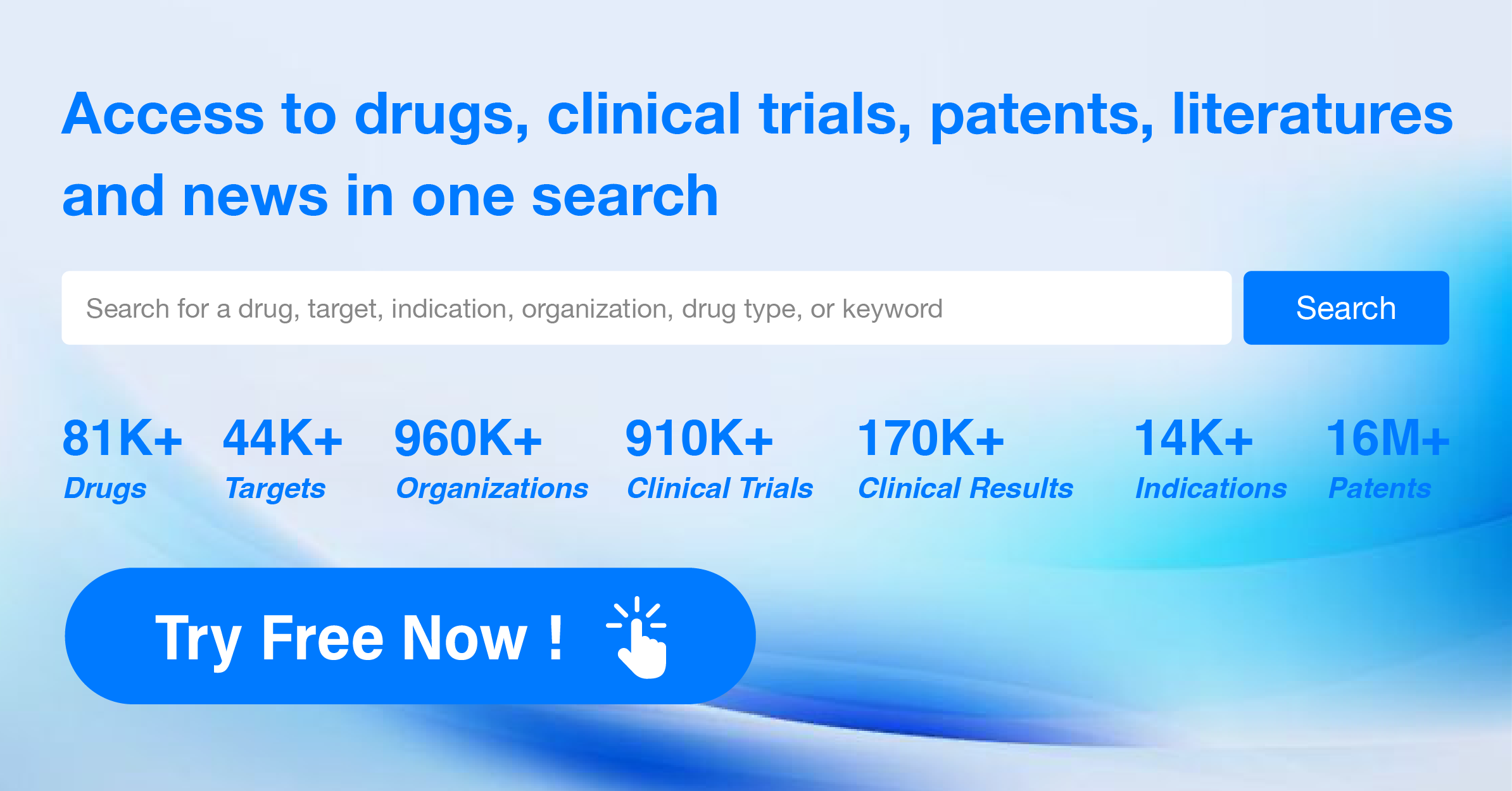Summary of Global Clinical Trial Failures in March 2024
1. Amylyx: AMX0035
Indication: Amyotrophic Lateral Sclerosis (ALS)
Clinical Trials: Phase 3
On March 8th, Amylyx Pharmaceuticals announced the top-line data from the Phase 3 clinical trial of AMX0035 for the treatment of Amyotrophic Lateral Sclerosis (ALS), dubbed PHOENIX, which did not meet its primary and secondary endpoints. Amylyx will communicate with regulatory authorities, including plans for a voluntary withdrawal from the market.

AMX0035, a combination of sodium phenylbutyrate and taurursodiol, was approved by the FDA for marketing in September 2022, with a pricing of $158,000 per year. The PHOENIX study enrolled 664 ALS patients, and results did not meet the primary endpoint, which was a significant statistical difference in the change from baseline in the ALS Functional Rating Scale-Revised (ALSFRS-R) score at week 48 compared to the placebo group (p=0.667). Additionally, the study failed to meet secondary endpoints including patient-reported assessments of quality of life, overall survival, and respiratory function measured by Slow Vital Capacity (SVC).
2. Acadia: Pimavanserin
Indication: negative symptoms of schizophrenia
Clinical Trials: Phase 3
On March 11, Acadia Pharmaceuticals announced that the latest research results from the Phase 3 clinical trial ADVANCE-2 for the treatment of negative symptoms of schizophrenia with Pimavanserin did not meet the primary endpoint. The primary endpoint of the study was the change in total score on the NSA-16 (Negative Symptom Assessment-16) from baseline to week 26. The treatment group and the placebo group had NSA-16 score changes of -11.8 vs -11.1% at week 26, respectively, which were not statistically significant. The safety and tolerability were consistent with previous clinical trials, with a low incidence of adverse events.

As a result of this news, the stock price of Acadia Pharmaceuticals fell by 15% after hours.
3. Merck: Lynparza (olaparib)
Indication: metastatic non-squamous non-small cell lung cancer (NSCLC)
Clinical Trials: Phase 3
On March 21, Merck announced that its phase III KEYLYNK-006 trial of the PD-1 therapy Keytruda in combination with the maintenance PARP inhibitor Lynparza (olaparib) as a first-line treatment for certain patients with metastatic non-squamous non-small cell lung cancer (NSCLC) did not meet the dual primary endpoints of overall survival (OS) and progression-free survival (PFS).

In addition, in December 2023, Merck also terminated a phase III study of Keytruda + Lynparza for metastatic squamous non-small cell lung cancer. The termination was due to the Independent Data Monitoring Committee (DMC) reviewing data from the planned interim analysis (IA3), which found that patients treated with Keytruda + Lynparza after combination chemotherapy with Keytruda did not show an improvement in overall survival (OS) compared to those treated with Keytruda plus placebo after the same chemotherapy regimen. Progression-free survival also lacked statistical significance.
Previously, in August 2022, Merck had announced that two phase III clinical trials of Keytruda had failed to meet their endpoints. These were the results of a phase III clinical trial for newly diagnosed liver cancer using Keytruda in combination with Eisai's lenvatinib (Lenvima), and for metastatic castration-resistant prostate cancer treated with Keytruda + Lynparza after prior therapy.
4. Chugai: Enspryng
Indication: generalized myasthenia gravis (gMG)
Clinical Trials: Phase 3
On March 21st, Chugai Pharmaceutical, a partner of Roche, announced the Phase III LUMINESCE study results for the treatment of generalized myasthenia gravis (gMG) with Enspryng. Although statistically significant data was observed for its primary endpoint, the outcomes did not meet the expected level of clinical benefit.

Enspryng is an interleukin-6 (IL-6) receptor antagonist that was approved by the U.S. FDA in August 2020 to treat adults with neuromyelitis optica spectrum disorder (NMOSD) who are positive for anti-aquaporin-4 (AQP4) antibodies. Subsequently, in May 2021, satralizumab was approved for marketing in China, becoming the first therapeutic drug for neuromyelitis optica spectrum disorder in the country. CP Pharmaceuticals stated that these study results do not affect the use of Enspryng in patients with NMOSD. The company is also developing Enspryng for other neuro autoimmune and inflammatory diseases.
5. Altimmune: HepTcell
Indication: hepatitis B
Clinical Trials: Phase 2
Altimmune faced a setback in its fight against hepatitis B. The therapy in development, intended for potential partnerships, couldn't clear the required benchmarks during a mid-stage clinical trial. This led to the decision by the company to discontinue the drug’s progress and pivot its attention to a different therapy targeting the dual receptors of GLP-1 and glucagon.
The biopharmaceutical firm located in Maryland had crafted its therapeutic candidate, named HepTcell, with the intention of mobilizing the body's T cells to combat the viral infection. Initial results from a phase 1 clinical trial were promising, showing that HepTcell spurred an increased T-cell reaction to the antigens associated with hepatitis B. Motivated by these preliminary outcomes, Altimmune initiated a larger study that enrolled 80 participants and utilized a placebo for comparison, hoping to establish the treatment’s efficacy in reducing or potentially eliminating the presence of the hepatitis B surface antigen.
Nevertheless, the conclusions from this larger trial indicated a less than satisfactory overall effectiveness, leading to the decision that it was not justifiable to proceed with the HepTcell's development. Subsequently, Altimmune ceased any further work on this therapeutic approach.




